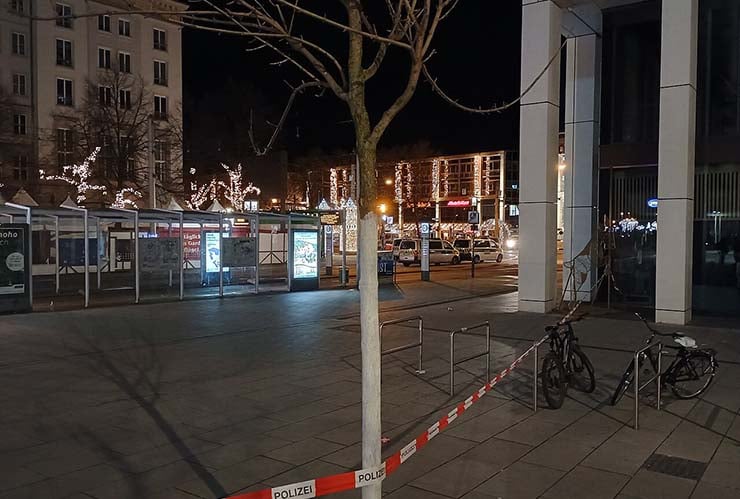One of my favorite things about Germany at this time of year are the Christmas markets. They usually pop up in town squares at the beginning of Advent, filling streets with pointed white tents that house stalls where hot Bratwurst and Glühwein await to warm your bones and belly. The smells of spices and sweets waft through crowds standing on wet cobblestones that reflect the lambent light. It’s really a wonderful thing. But out of the corner of your eye, you will occasionally catch glimpses of ugly concrete barriers around the markets that give the impression of a military checkpoint.
These barriers have become a common eyesore over the last decade in these cities because of people like Taleb al-Abdulmohsen. Not that they always work. Last Friday, he managed to attack a Christmas market in Magdeburg with his car. As of this writing, 205 people are injured, 41 are “critically injured,” and at least five are dead, including a child, who was nine.
Al-Abdulmohsen is the latest in a series of attackers, typically from the Islamic world, who used a vehicle as a weapon against their adoptive country—against Europeans. Reports indicate that he found a chink in the wall of barriers that were supposed to stop him. “No car should come close, let alone be on a Christmas market. There has to have been a gap that no one realised needed to be closed,” Hans-Jakob Schindler, senior director of the Counter Extremism Project, told the BBC.
The first attack of this kind occurred in 2016 when a truck driven by a Tunisian asylum seeker slammed into a Berlin Christmas market. The perpetrator turned out to be a devotee of the Islamic State. He killed 12 and wounded 56 in its name. The Magdeburg incident was similar but strange in other ways and has thrust immigration back into the limelight.
Al-Abdulmohsen is a Saudi national who has lived in Germany since 2006 and was granted asylum in 2016. A psychiatrist by trade, albeit a bad one. Colleagues referred to him as “Dr. Google,” because he utilized search engines for diagnosis as much as his patients did.
According to the BBC, he also operated a website “that aimed to help other former Muslims flee persecution in their Gulf homelands.” He was apparently on the government’s radar for a while, but not for Islamic extremism. In fact, he described himself as “the most aggressive critic of Islam in history” in 2019 to Frankfurter Allgemeine Zeitung and was sympathetic on social media in a superficial way to the Alternative for Germany (AfD), which takes a hardline position against immigration. Al-Abdulmohsen had interacted with the police over the years for making threats, but they appear to have been in relation to the asylum system and the government in general.
The Saudis said that they repeatedly tipped off German authorities about al-Abdulmohsen’s erratic behavior. Police officials acknowledge that they had investigated and questioned him but closed an inquiry after concluding he was not “capable of violent acts.” Tell that to the victims and their families.
But despite some of the confusing details, one thing is crystal clear: the Magdeburg attack would not have happened if al-Abdulmohsen had not been allowed into the country and then allowed to remain there despite several red flags—their connection, or lack thereof, to Islam being irrelevant. He is a clearly deranged person who never should have been let in, and the media’s focus on the absence of religious fundamentalism as a motive is no comfort to the dead and wounded.
There’s a line from Plutarch’s Life of Lycurgus that comes to mind, supposedly from the legendary lawgiver himself. Unlike other Greek poleis, Sparta did not initially have defensive walls around it. Asked if he thought it would be wise to construct fortifications, Lycurgus allegedly replied: “A city is well-fortified which has a wall of men instead of brick.” In another translation: “that cannot be called an open town which has courage, instead of brick walls to defend it.”
The point of this laconism is that a spirited polis without walls stands a better chance of survival than walled ones without spirit. A growing number of Europeans understand that concrete barriers are no substitute for political action. It’s the same story all across the West and the driving force behind the rise of so-called “far-right” parties, and yet it is the popularity of these political forces that causes the most alarm among liberal elites. They see a car slam into a Christmas market and worry, above all, about whether that will help the AfD. They’re right to worry.
What they don’t see, even now, is that their actions and attitudes called forth and may demand these alternatives, in Germany and elsewhere.

Leave a Reply